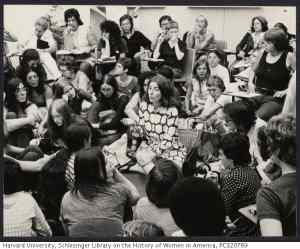
Navigating the ‘Festive Season’ as an Activist
Holly Hammond reflects on the challenges and opportunities of an activist Christmas. Great tips on surviving the holidays.

Plan to Thrive was a project which supported and promoted the health and wellbeing of people and groups engaged in working for social and ecological justice.
Plan to Thrive challenged activist cultures and identities which emphasised stoicism, isolation and joylessness. Burn-out is not inevitable and it’s possible to live happy and healthy lives while working to change the world.
Plan to Thrive was a shared blog and workshop series which is no longer operating. Some of the most popular articles from the project are gathered in the Commons Library.

Holly Hammond reflects on the challenges and opportunities of an activist Christmas. Great tips on surviving the holidays.

US activist and educator Daniel Hunter shares important tips for sustaining ourselves and our movements in the face of challenging times. He outlines seven behaviors that we could incorporate into our groups so we can keep taking powerful and strategic actions.

Activist wisdom has been gathered from a survey of nearly 200 about how to sustain ourselves as activists. A great list from those who have been there.

Elections can take a heavy toll campaigners, organisers, and anyone else working and hoping for social and ecological justice. Now is a time for looking after ourselves and each other, to get in good shape for what comes next.

A useful model for understanding activist burnout and how to avoid it from the Transitions Towns movement. Includes a downloadable worksheet with prompts for reflection.

Overwork has heavy costs. Working longer hours is dangerous and ineffective. But poor management, the subconscious, workplace culture, and work volume, can each be a barrier to better workplace practices. Thankfully though, these barriers can be overcome.

A review of Katrina Shield’s ‘In The Tiger’s Mouth: An Empowerment Guide for Social Action’. What most distinguishes this books is its emphasis on three elements not often considered in other campaigning texts: self-awareness, collaboration, and self-care.

The annual R U OK Day aims to prevent suicide by building connection. This articles looks at what individuals and groups engaged in social change can do to connect with and look out for others.

Setting a life up to sustain activism doesn’t always come easy. Just like in a campaign we’re much more likely to get where we want to go if we’re clear about the intended destination – and if we take effective steps in that direction. These tips are provided to help you reach your healthy goals.

To be fresh and ready for the challenges of social change we also need quality time off. Here are some tips for getting the most out of a break, whether a longer holiday, weekends or any captured moment for potential relaxation.

Experiencing defeats contributes to many people losing hope, burning out, or just dropping out of activism. If we can set up our organisations and social movements to function effectively we’re more likely to foster hope and keep engaged and emotionally strong activists.

Overwhelming events happen and depending on our degree of privilege, daily stressors can be constant. Unless we are in crisis and/or an immediate life threatening situation it’s incredibly beneficial to spend time cultivating resources which support your health, embodiment, connectedness and feelings goodness.

Consciousness raising was a key element of the second wave women’s movement enabling women to recognise that the personal is political. This article gives an overview of group consciousness raising processes relevant for any group based on a shared identity or experience of oppression.

Why not take some time out to reflect on the year that was, before jumping in to plans for the next? Different approaches to reflection are explored including journalling, art and ritual. Plus there’s a handy worksheet which you can use (at any time of the year).

Community organisers (and other change agents) have some excellent tools that can maximise the likelihood of making healthy goals a reality. This article will tune up your organising smarts as well as your health and wellbeing.

Analysis of Beth Kanter & Aliza Sherman’s argument that nonprofits should transform their workplace culture to have more productive & happier workers.

Hope in the Dark was written by Rebecca Solnit to help activists and campaigners find hope in times of struggle. Here Matt Ross reviews the American author’s arguments for keeping the faith in times of despair.

A book review of The Transition Handbook by Rob Hopkins with emphasis on its insights around the emotional & psychological impact of climate change.

This article explores some of the ‘cognitive errors’ or ‘traps’ that contribute to activist burnout. Read through this list and see if you might need to adjust your perspective, in the interests of your health, wellbeing and effectiveness.

Humanitarian aid workers are at significant risk of burnout and trauma. Martina Nicolls explains the challenges unique to aid workers.